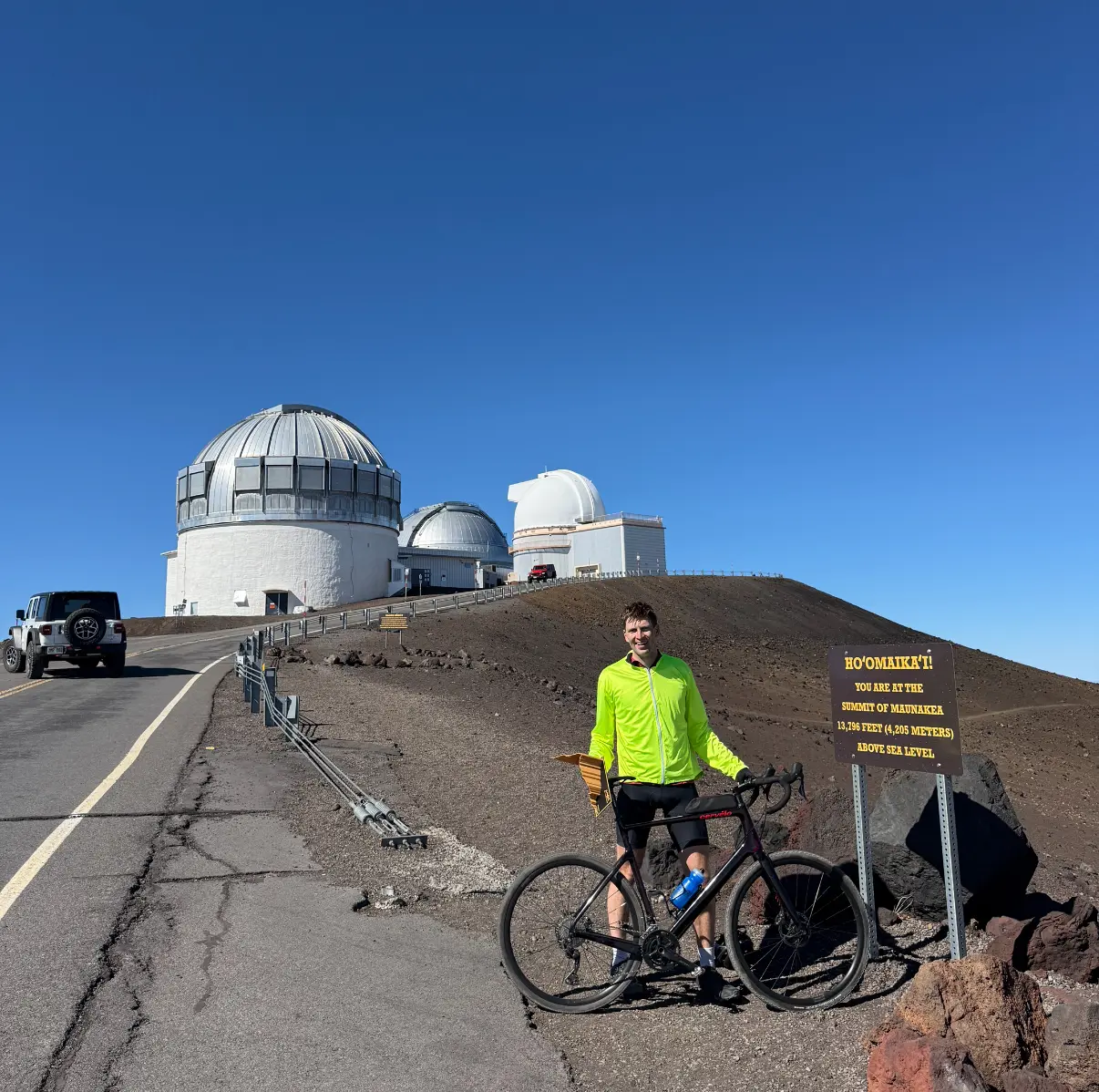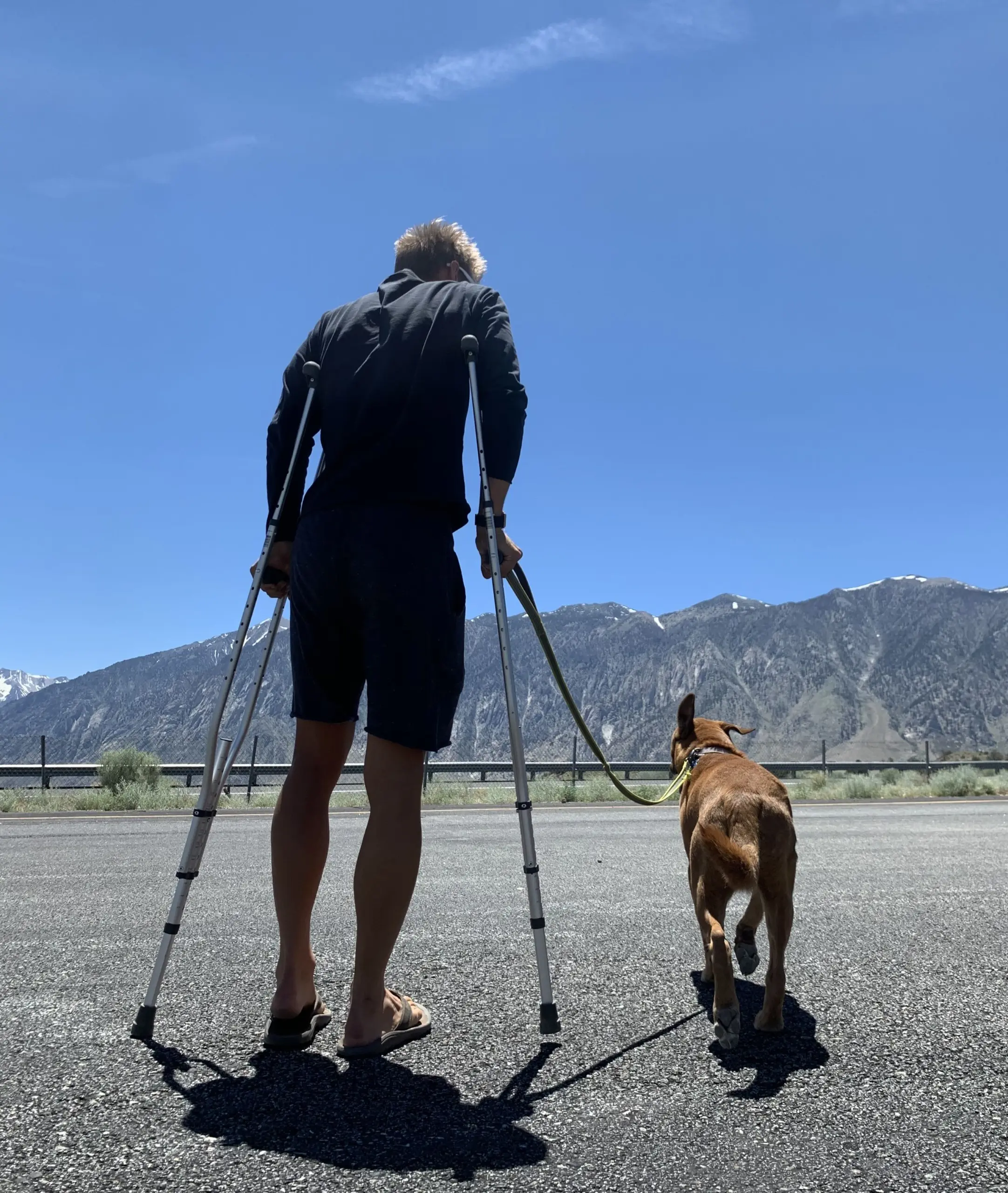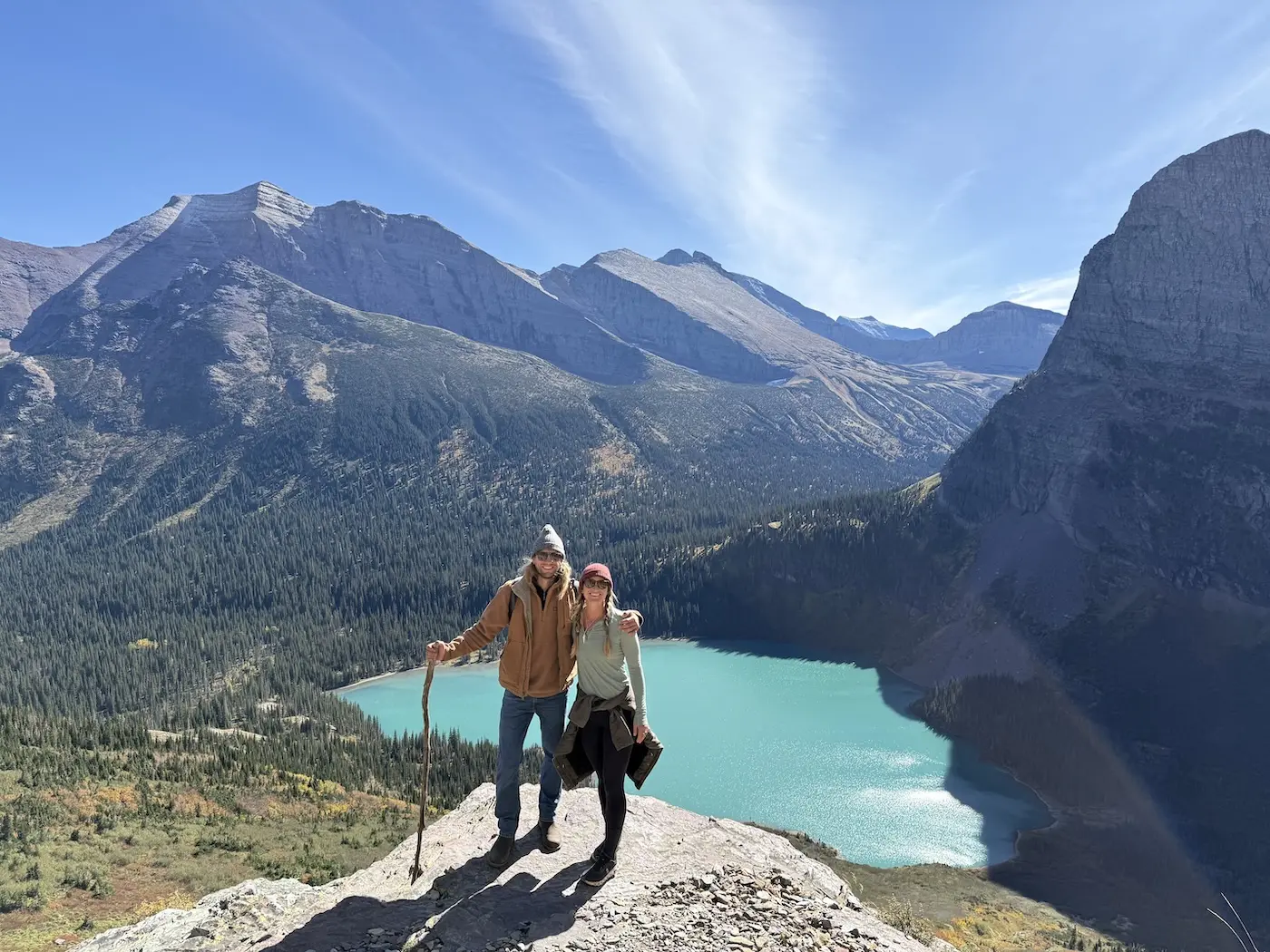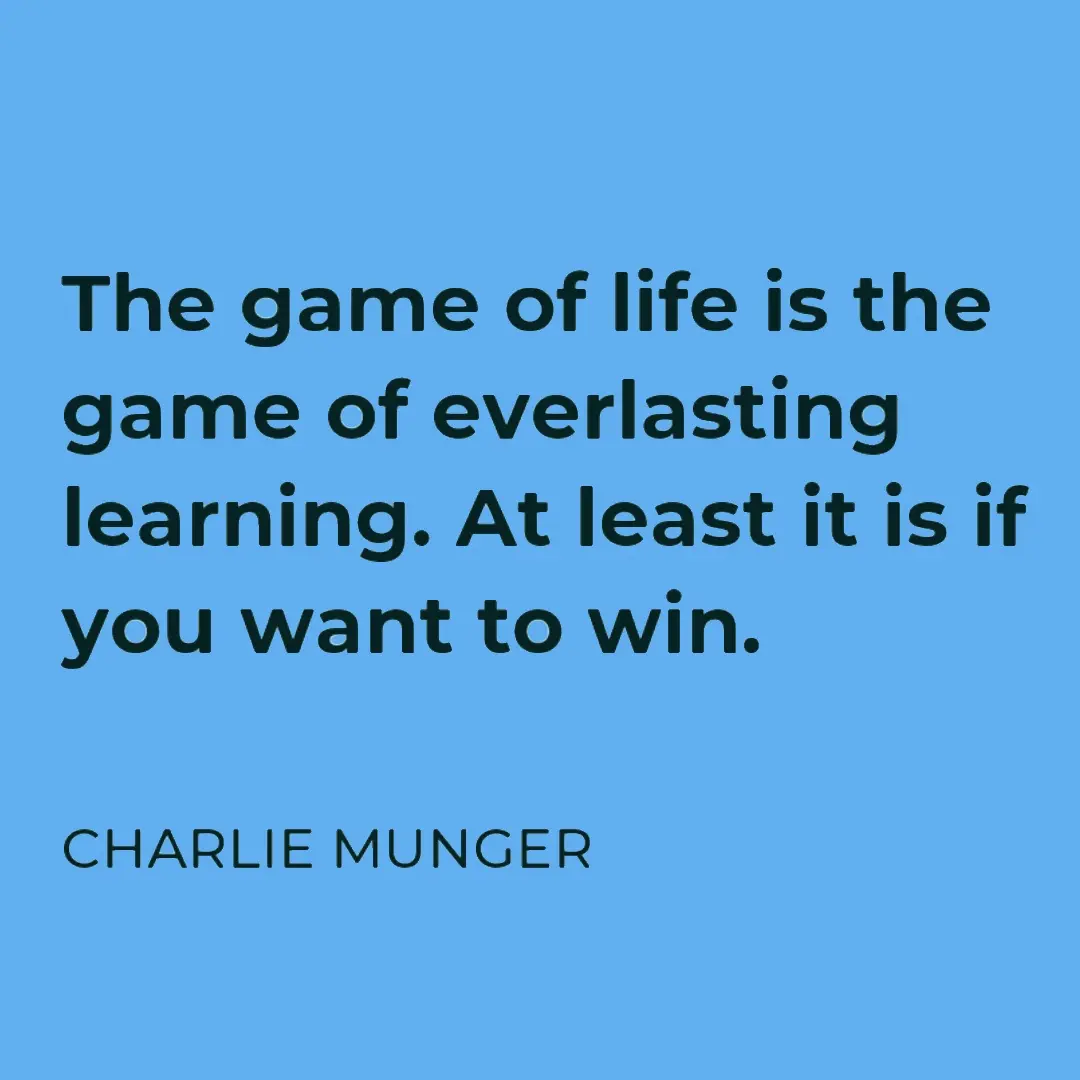Eight hours into the longest road bike climb in the world, Mauna Kea, I found myself sitting on the side of the road next to an athlete who was completely cracked. Altitude sickness was hitting him hard. He looked like he might cry.
I wrapped my arm around his shoulders and said,
“Dude, you got this. Easy pedal. Higher cadence. Do the paperboy, side to side. Use the whole width of the road. I’ll block the cars. Just two miles to go. Don’t give up now.”
Five minutes later, he was back on the bike.
Forty-five minutes after that, we stood at the summit, collapsing into each other’s arms. He made it.
That moment, raw, emotional, human is something AI can’t replicate.
I’m deeply optimistic about AI. The pace of development is stunning. My dad’s already using it for his business. The adoption curve is steep, and the tools are getting better fast. AI will change more about our lives than we can even imagine right now. I believe it will do a lot of good.
But even as we move toward a world of automation, lower costs, and post-scarcity abundance, we’re left with a core human challenge:
If machines can do everything… what’s left for us?
That question isn’t theoretical for me. After retiring from pro sports, I lost my identity. I had to find meaning again. For years, I wrestled with purpose, who I was beyond performance, and what it means to live a good life.
What I found was simple but powerful:
Human experiences matter. Learning, growing, connecting, that’s the real stuff.
I built that belief into Kona Endurance. And it’s the same foundation for Hawaii Epic Cycling. Yes, we use smart tools, tech, and even AI to improve training, but the heart of it is people. Struggle. Joy. Breakthroughs. Shared moments that stick with you forever.
The danger is that in a world run by algorithms, we mistake efficiency for meaning. But making money and paying bills was never the point it’s just a survival loop. If that loop disappears, we either go crazy… or we evolve.
Real freedom is not just about escape from labor. It’s about waking up and choosing how to live.
That includes giving back. Teaching others. Pushing your body. Exploring your potential. And becoming someone you’re proud of when no one’s watching.
Endurance sports are one powerful way to get there.
Not because everyone should race an Ironman, but because testing your limits reveals your character. It’s why I coach athletes not just for results but for resilience and becoming better humans.
Some of them come to me after chasing status, money, or physical extremes only to burn out.
What they’re really looking for is the next transformation:
Not a faster split. A deeper self.
When we guide people toward becoming better humans, not just better performers, they experience real satisfaction. They carry that strength into life, family, and leadership.
AI can give you the perfect plan.
But it can’t stand on the side of the road with you at 14,000 feet and tell you, “You got this.” Well maybe it can, but a robot screaming won’t be the same as a fellow authentic human who cares about you.
That’s why our future won’t be built by AI, it’ll be built with it.
Precision from machines. Empathy from humans.
At Kona Endurance and Hawaii Epic Cycling, we’re not just leveraging AI, we’re elevating the human spirit. One experience, one interaction, one breakthrough at a time.
AI can handle more of the heavy lifting—data, schedules, even complex analyses. But there’s one thing it can’t do: share a sunrise conversation or the comfort of a real hug.
Next time you let AI draft your plan, carve out 15 minutes to call a friend or sit with someone face-to-face. Use the extra time you gain not for more screen-time, but for a simple, human moment. After all, the real measure of progress is how we show up for each other.
Flo
www.konaendurance.com




